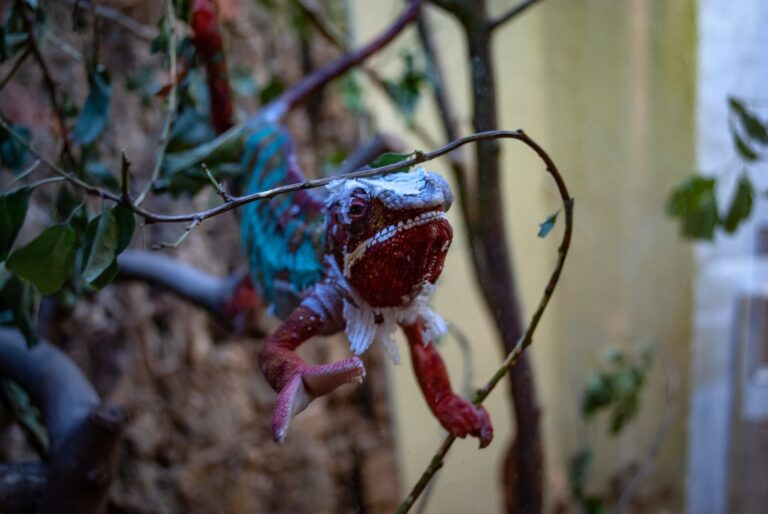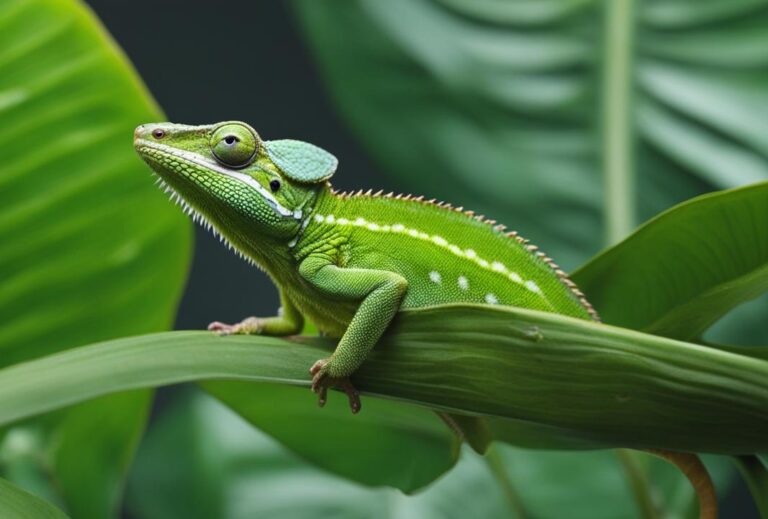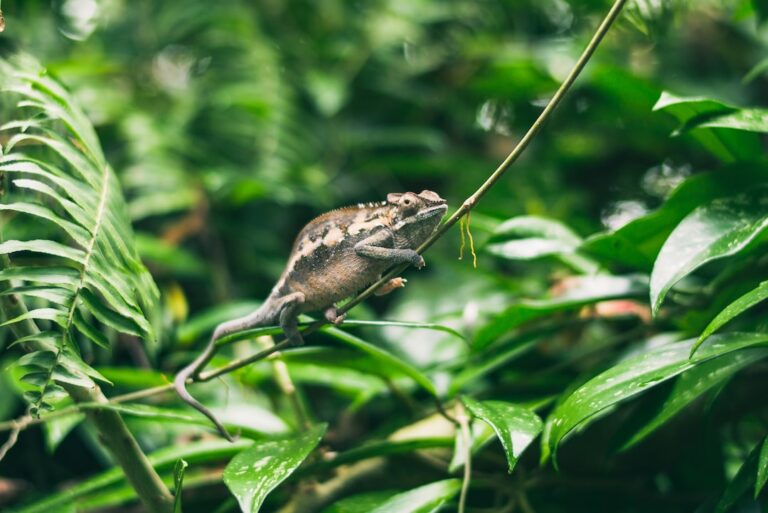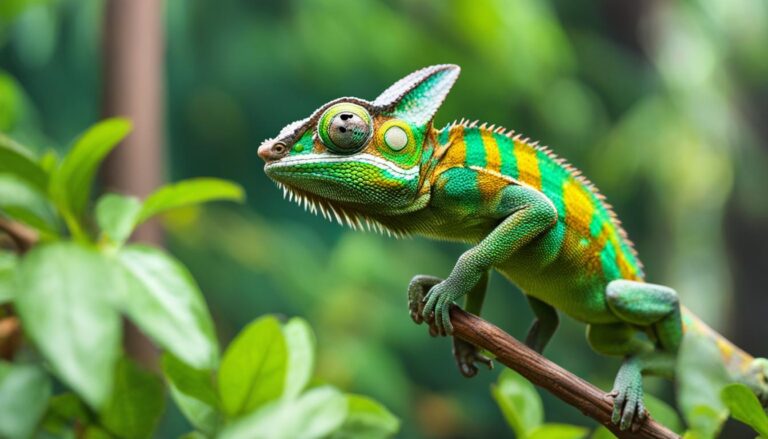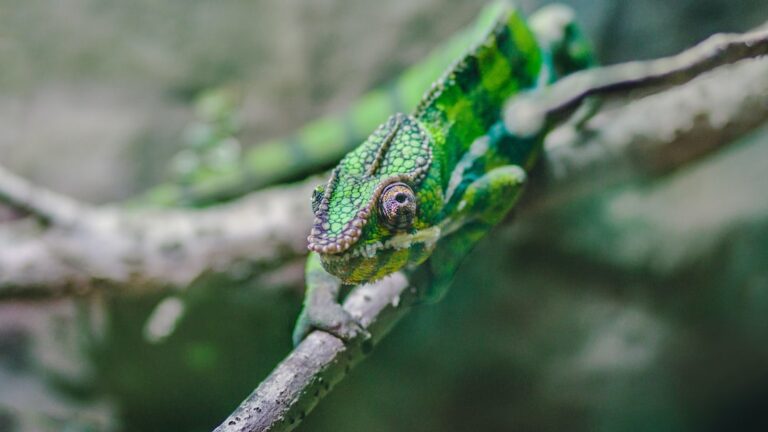Can Chameleons Eat Mealworms?
Chameleons are fascinating reptiles known for their ability to change color and blend into their surroundings. They are native to Africa, Madagascar, and parts of Asia, and come in a variety of species, each with its own unique characteristics. Chameleons are insectivores, meaning they primarily eat insects as their main source of nutrition. However, it is important to provide them with a varied diet to ensure they receive all the necessary nutrients for their overall health and well-being.
Table of Contents
What Are Mealworms and Their Nutritional Value
Mealworms are the larvae of darkling beetles and are commonly used as feed for reptiles, birds, and other small animals. They are readily available at pet stores and can also be bred at home. Mealworms are high in protein, making them a nutritious food source for chameleons. They also contain essential vitamins and minerals such as calcium, phosphorus, and potassium.
Can Chameleons Digest Mealworms?
Chameleons have a unique digestive system that allows them to consume a wide variety of insects. Their digestive tract consists of several sections, including the esophagus, stomach, small intestine, and large intestine. Chameleons have a relatively short digestive tract compared to other reptiles, which means they have a faster digestion process.
Chameleons have the ability to digest mealworms due to their strong stomach acid and enzymes that break down proteins. However, it is important to note that mealworms have a tough exoskeleton that can be difficult for chameleons to digest. Therefore, it is recommended to gut-load or dust the mealworms with calcium powder before feeding them to chameleons to ensure they receive the necessary nutrients.
The Pros and Cons of Feeding Mealworms to Chameleons
Feeding mealworms to chameleons has its benefits and drawbacks. One of the main advantages is that mealworms are readily available and relatively inexpensive. They are also high in protein, which is essential for the growth and development of chameleons. Additionally, mealworms can be easily stored and do not require refrigeration, making them a convenient food source.
However, there are also some drawbacks to feeding mealworms to chameleons. As mentioned earlier, mealworms have a tough exoskeleton that can be difficult for chameleons to digest. This can potentially lead to digestive issues such as impaction if the chameleon consumes too many mealworms or if they are not properly prepared. Another drawback is that mealworms have a high fat content, which can lead to obesity if fed in excess.
How to Prepare and Serve Mealworms to Chameleons
To ensure that mealworms are safe and easily digestible for chameleons, it is important to properly prepare and serve them. One method is to gut-load the mealworms before feeding them to the chameleon. Gut-loading involves feeding the mealworms with nutritious foods such as fruits, vegetables, and calcium powder for at least 24 hours before offering them to the chameleon. This ensures that the chameleon receives the necessary nutrients from the mealworms.
Another method is to dust the mealworms with calcium powder before feeding them to the chameleon. This helps provide additional calcium, which is important for bone health and preventing metabolic bone disease in chameleons. The mealworms can be placed in a plastic bag or container with a small amount of calcium powder and shaken gently until they are coated.
When serving mealworms to chameleons, it is recommended to offer them in moderation as part of a varied diet. They should not be the sole source of nutrition for the chameleon. It is also important to remove any uneaten mealworms from the enclosure to prevent them from burrowing into the substrate and potentially causing harm to the chameleon.
Other Foods That Chameleons Can Eat Besides Mealworms
While mealworms can be a nutritious addition to a chameleon’s diet, it is important to provide them with a variety of other foods to ensure a balanced diet. Chameleons can also eat other insects such as crickets, roaches, and silkworms. These insects provide different nutrients and can help prevent boredom in the chameleon’s diet.
In addition to insects, chameleons can also eat fruits and vegetables. Some suitable options include leafy greens like kale and collard greens, as well as fruits like apples, strawberries, and melons. It is important to wash these foods thoroughly and remove any seeds or pits before offering them to the chameleon.
Risks and Precautions When Feeding Mealworms to Chameleons
While mealworms can be a beneficial part of a chameleon’s diet, there are some risks and precautions to be aware of. As mentioned earlier, mealworms have a tough exoskeleton that can be difficult for chameleons to digest. This can potentially lead to digestive issues such as impaction if the chameleon consumes too many mealworms or if they are not properly prepared.
Another risk is that mealworms have a high fat content, which can lead to obesity if fed in excess. It is important to feed mealworms in moderation and ensure that they are part of a varied diet that includes other insects and nutritious foods.
Signs of Digestive Problems in Chameleons After Eating Mealworms
If a chameleon experiences digestive problems after eating mealworms, there are several signs to look out for. These include decreased appetite, lethargy, weight loss, bloating, constipation, or diarrhea. If any of these symptoms are observed, it is important to consult a veterinarian who specializes in reptiles for a proper diagnosis and treatment.
Tips for a Balanced Diet for Chameleons
To ensure a balanced diet for chameleons, it is important to follow these tips:
1. Offer a variety of insects such as crickets, roaches, and silkworms in addition to mealworms.
2. Gut-load or dust the insects with calcium powder before feeding them to the chameleon.
3. Provide a variety of fruits and vegetables as part of the chameleon’s diet.
4. Remove any uneaten food from the enclosure to prevent spoilage and potential health issues.
5. Consult a veterinarian who specializes in reptiles for guidance on the chameleon’s specific dietary needs.
Should You Feed Mealworms to Your Chameleon?
In conclusion, mealworms can be a nutritious addition to a chameleon’s diet when fed in moderation and properly prepared. They are high in protein and contain essential vitamins and minerals. However, it is important to be aware of the potential risks and precautions associated with feeding mealworms to chameleons.
A varied and balanced diet is crucial for the overall health and well-being of chameleons. In addition to mealworms, chameleons should be offered a variety of other insects, fruits, and vegetables to ensure they receive all the necessary nutrients. It is also important to monitor the chameleon for any signs of digestive problems after eating mealworms and seek veterinary care if needed.
By following these guidelines and providing a diverse diet, you can help ensure that your chameleon remains healthy and thriving.
If you’re curious about the dietary habits of chameleons, you may also be interested in learning whether they can eat mealworms. In a related article on Reptile Friend, you can explore the topic of what chameleons can consume and whether mealworms are a suitable option for them. To find out more, check out the article “Can Chameleons Eat Mealworms?” at http://reptilefriend.com/can-chameleons-eat-mealworms/.


